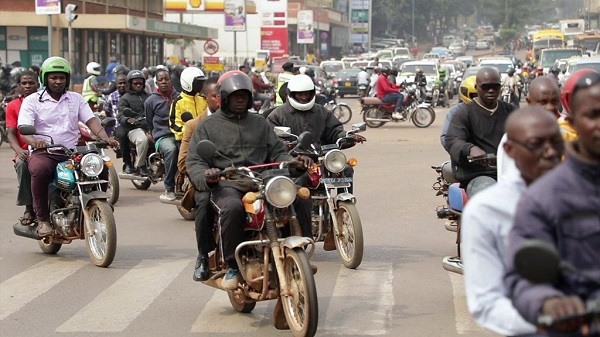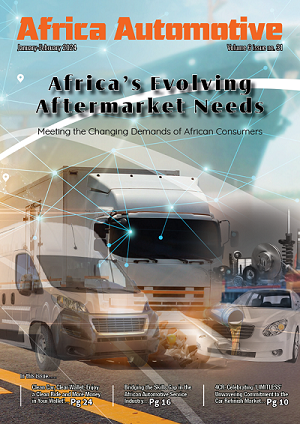Poor urban transit planning has led to daily, never-ending traffic jams that make it difficult for people to get around Uganda’s capital Kampala.
Buses and taxis can be stuck in traffic for hours, so commuters often prefer to zip past jams on motorbikes.
But Africa also has the world’s highest motorcyclist death rate, according to the World Health Organization.
The worsening traffic jams have led to the rise of the boda-bodas, as more and more people see the potential business opportunity in fast, convenient transport unhampered by congested roads.
Motorbikes and mopeds cost far less than cars, and it is easier and faster to get licensed and onto the roads.
All you have to do is drive down busy roads and customers will hail you, plus they pay in cash.
Kampala now has over 200,000 boda-boda drivers zipping around the capital, yet the industry remains largely unregulated.
Shaneen, a writer in Kampala, says she likes to use a service called Safe Boda instead of traditional public transport.
“The transport scene in Kampala is very chaotic. There’s an accident I think every day,” she told the BBC.
“I use Safe Boda because it’s safer, faster, they drive really carefully so I’m not worried when I’m sitting on one, and it’s much cheaper than other options.”
Championing safety
Ricky Rapa Thompson, the co-founder of popular ride-hailing app Safe Boda, was one such driver himself.
After a close friend and fellow driver died from hitting his head on a pavement, Mr Thompson realised that boda-boda drivers and their passengers really needed to be wearing helmets.
“Our aim was to bring change into the boda-boda industry. People are dying as boda-boda drivers every day,” Mr Thompson told the BBC.
“People like the fact that the details of the journey are stored somewhere, that someone is accountable for the drivers.”
He started Safe Boda to create a more professional ride-hailing service, where drivers were trained to meet better safety standards.
The Red Cross even partnered with the firm to teach the drivers first aid.
Instead of working for themselves, the drivers accept rides on a mobile app, similar to the way Uber works.
Safe Boda has now recruited over 8,000 drivers.
‘Competition doesn’t matter’
However Safe Boda is not the only company now jumping onto the mobile app bandwagon, and there are plenty of drivers who don’t even work for a company.
One such competitor is Dial Jack – a mobile app aggregator that is also offering boda-boda ride hailing, but eventually wants to offer users a range of different services.
But the start-up doesn’t seem concerned that too many drivers and firms might be saturating the market.
“If you go out onto the streets, anecdotally you can see a few Safe Boda guys, you see a few Dial Jack guys, you see a few guys from other companies, and as a percentage, we’re not even capturing 1% of the potential market here,” Dial Jack’s co-director Tex Wright told the BBC.
“Safe Boda, ourselves and a few others are doing our best to bring some structure into an unregulated environment, so competition is good.”





